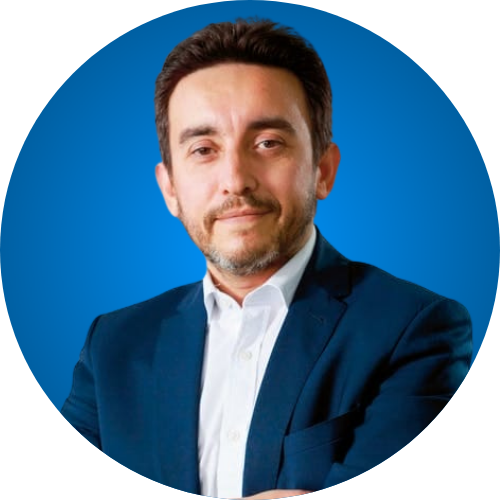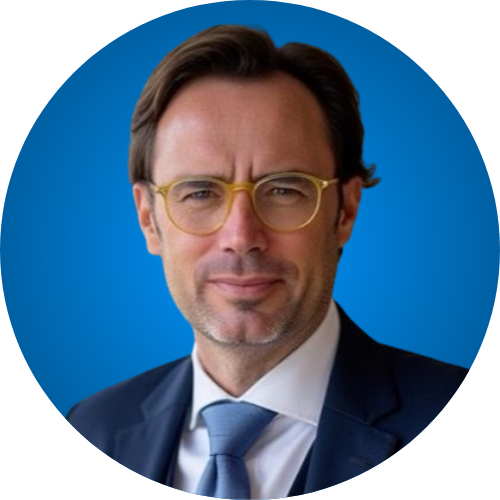
This one-of-a-kind event united leaders from politics, energy, media, technology, and youth to address the pressing challenges of our time, focused on accelerating the energy transition.
In an age of uncertainty—marked by geopolitical tensions, climate instability, and the rapid evolution of technology — one thing is clear: the future won’t wait! There is a growing need for dialogue that fosters collaboration, innovation, and radical optimism. The Lisbon Future Dialogue was more than just a conversation, it was a catalyst for bold ideas and game-changing collaboration, where global leaders, policymakers, business pioneers, and visionaries came together to shape a future that is not only sustainable but socially just and technologically responsible.
Over two days, participants engaged in bold conversations on defining issues of our time, such as the geopolitics of the energy transition, the role of artificial intelligence and big tech in sustainability, the impact of climate change on migration and social justice, and the growing challenges of disinformation in the digital era. The event also examined how we could rise above political and cultural divides to spark a global movement for climate action and energy transformation.

The renewable energy transition is accelerating — but it is not inevitable. While global deployment is at record highs, the progress is not well-known or well-understood. Geopolitical tensions and rising protectionism are being weaponized to stall the clean energy shift, making it harder for renewables to reach the very regions that need them most. Climate and sustainability are being pushed down the priority list, drowned out by political crises and disinformation. How we steer the next chapters of the energy transition will be vital for progress.
Technology can be a powerful enabler — or a weapon for disinformation and against truth. In an age of rampant misinformation, how can we turn digital tools into allies? This session explored challenges of disinformation and opportunities such as AI, social platforms, and community tech, which can strengthen trust, resilience, and radical optimism — especially by elevating youth and frontline voices.
With a clear narrative and digital tools in hand, how do we grow a movement that lasts and avoids major economic, social, climate, and political challenges ? This session explored how to build coalitions of the willing — grounded in authenticity, inclusive leadership, and intersectional storytelling — that can drive momentum toward COP30 and beyond.

Managing Partner, EcoPragma Capital & CEO, Liebreich Associates

Former Secretary of State for Energy & Former Minister for Infrastructure of Portugal

Climate and Energy Lead at the World Meteorological Organization (WMO)

Director of Research
& Communications, Head of The Futures Lab Unitas Global Advisory

President, APREN

Chair, Global Renewables Alliance
CEO, Global Wind Energy Council

Author, Geopolitics expert and former Secretary of International Affairs of Portugal

CEO, Long Duration Energy Storage

CEO, Island Innovation

CEO, Global Renewables Alliance

CEO, ADENE

Energy Segment Lead, Partner, EY

Senior Executive Advisor, SEforALL

Head of Secretariat, Mission Innovation

Digital Communications Consultant

Executive Director, Student Energy

Sustainability Director,
St. Kizito Schools Namugongo & Founder, Centre for Inclusive Green Skills & WEYE Clean Energy Co. Ltd

Director, Division of Energy and Climate Action, UNIDO

CEO, International Hydropower Association

Science writer, broadcaster and Anthropocene researcher

Director, Asia Communications and Global Special Projects, GEAPP

CEO, Megajoule

Global Focal Point, SDG7 Youth Constituency Co-Chair IRENA Youth Council

Fundraising, Public Partnerships & Advocacy Manager at Just a Change

Founder and Environmental Content Creator, Behind the Greens

Executive Director, EnergyTag

Campaign Lead Banks & Climate, BankTrack

Senior Associate, Global Networks & Partnerships, Clean Cooking Alliance

Environment & Climate Lead, Chatham House

Coordinator for Information & Education
Future Food was a two-day programme that ran alongside Future Dialogue, exploring how we could future-proof our food systems through stronger chef–producer relationships, community education, and the celebration of Portuguese produce and territories.
Through talks, demos, tastings, and collaborative action, we built a white paper of ideas and pledges to shape a resilient, sustainable food future.
Future Food served as a platform to feed the conversation around our global food systems.
The future of food through the lens of regenerative farming, ethical sourcing, and sustainable gastronomy. Leading chefs, producers, and food thinkers showcased local game, seafood, and soil-friendly ingredients in live cooking sessions. Bold conversations on greener gastronomy, future-proofing food systems, and strengthening the relationship between chefs and producers.
A celebration of plant-based, planet-friendly food built on biodiversity and zero-waste practices. Day 2 brought together chefs, activists, and innovators to champion local, seasonal ingredients and culturally inclusive menus. Dynamic talks, interactive dining experiences, and campaigns like Beans is How, proved that the future of food can be delicious, healthy, and sustainable.
A curated, immersive food journey developed and delivered by visionary Future Food chefs Vince Kelly and Arthur Potts. These internationally respected leaders in sustainable gastronomy brought decades of expertise in culinary innovation, systems change, and community impact.
“We cannot talk about energy, technology, climate, and justice without talking about food. Food lies at the heart of every global challenge and every viable solution. From soil health to social cohesion, from carbon emissions to cultural identity — how we grow, distribute, and eat our food is central to shaping a more just, liveable, and confident green world,” said Future Food Chefs Vince Kelly & Arthur Potts
Working in collaboration with our host Praça Beato, the future-chefs co-designed the culinary framework of Future Food by working with local chefs, farmers, food artisans, and policymakers to reflect the unique culture and ecosystem of Portugal, while staying rooted in global sustainability standards.